
The internet has resulted in an explosive growth of small businesses across the globe. With the proliferation of the cloud, smaller companies are able to provide services on par with the larger players. Consumers have also come to expect the same service from the small eCommerce retailers (e-tailers) that they experience with larger players such as Amazon. This service includes expedited shipping, same-day delivery, easy returns, real-time stock visibility, and the list goes on. This new era of competition is forcing e-tailers to evolve and choose systems that are best-of-breed and well-integrated with each other to drive efficiencies and speed.
In this article, we’ll look at how an ERP system can benefit eCommerce retailers of all sizes:
INCREASED EFFICIENCY
An ERP solution that integrates seamlessly with your eCommerce store helps with transferring order information to the ERP. This reduces manual data entry processes, which cannot keep up easily with increasing order quantities. An integrated ERP and eCommerce solution will also ensure that the product catalog is managed in a single place (single source of truth), which improves accuracy and increases efficiency.
BETTER DECISION-MAKING POWER
An eCommerce back-office operation traditionally involves the following to support a business: Accounting, Procurement/Inventory Management, Vendor Management, Warehouse Management, Shipping Systems, Payment Processing, CRM, and various other areas. Typically, a company will have lots of different software solutions to address all these areas. This means that each area is functioning independently. Without very tight control via integrated processes (most of which would be manual in nature), companies run the risk of making decisions based on inaccurate data. For example, without accurate information from sales, inventory management will be impacted. Without an accurate inventory, pricing and promotions offered by the marketing team will suffer, which in turn impacts cash flows and profitability.
A good, modern, cloud-based ERP system typically includes solutions/modules for each of these areas, ensuring that every business area within the organization relies on a single source of truth, allowing staff to make better decisions faster.
COST SAVINGS
Understanding sales trends allows for better projection of inventory, determining staffing needs resulting in better customer satisfaction, and reducing the amount of capital that is tied up in inventory on the shelf.
ACCOUNTING PRACTICES
At some point, most eCommerce companies will be looking to raise funds to cater for growth, or simply want to have a smooth financial audit. A good ERP will ensure that all of the businesses’ financial documents are in compliance with Generally Accepted Accounting Principles (GAAP) and International Financial Reporting Standards (IFRS). Often, the need for an ERP is raised by the accounting team based on the need for improved visibility and reporting.
OMNI-CHANNEL SUPPORT
If you have a brick and mortar store along with online stores, or you’re primarily an online marketer working with your own website and listing in market places such as Amazon or eBay, you need the capability to manage inventory across multiple locations and channels and improve the customer experience across those channels. An ERP integrated with your eCommerce store, as well as point-of-sale, market places, etc. will allow you to significantly improve customer experience. This is done by utilizing the ERP system as the hub that solutions across all channels connect into. For example, an order placed online can be picked up in the store or an item purchased in the store could be returned via the website. The opportunities for enhancing the customer experience are truly endless.
CUSTOMER SERVICE
With studies showing that customer experience will overtake price and product as the key brand differentiator by 2020, it’s extremely important to be able to track customer interactions, respond to customer queries quickly and monitor performance and escalations. It’s also essential to have complete visibility of all customer transactions with your business across all channels to be.
THE RIGHT ERP AND THE RIGHT VENDOR
There are a number of other areas that an integrated ERP and eCommerce system can assist e-tailers, including faster fulfillments by increasing order cut-off times, reducing order processing windows, improving the pick, pack and ship process, etc. However, as with any solution, selecting the right product and the right vendor is critical to the success of the business.
TOP 10 QUESTIONS TO ASK WHEN CHOOSING THE RIGHT ERP
- The obvious question: Does it connect to my eCommerce solution seamlessly?
- What data is synchronized? How often does it sync? Is it real-time? Is it bi-directional?
- Does it have an open API?
- Does it allow customizations and configurable workflows?
- Is the system cloud-based? Can it be located close to where your eCommerce website is hosted?
- Does it support all types of products (simple, customizable, kits or bundles, virtual products, etc.)?
- Can it allow me to authorize payments in the eCommerce system and capture the transaction at the time of shipping?
- How are taxes and shipping handled?
- Are the platform and company stable, and does is scale with my business?
- Is there a robust reseller and product support network?
For more information about how Kensium can help you select the right ERP platform, get in touch with a member of our team.








.png)



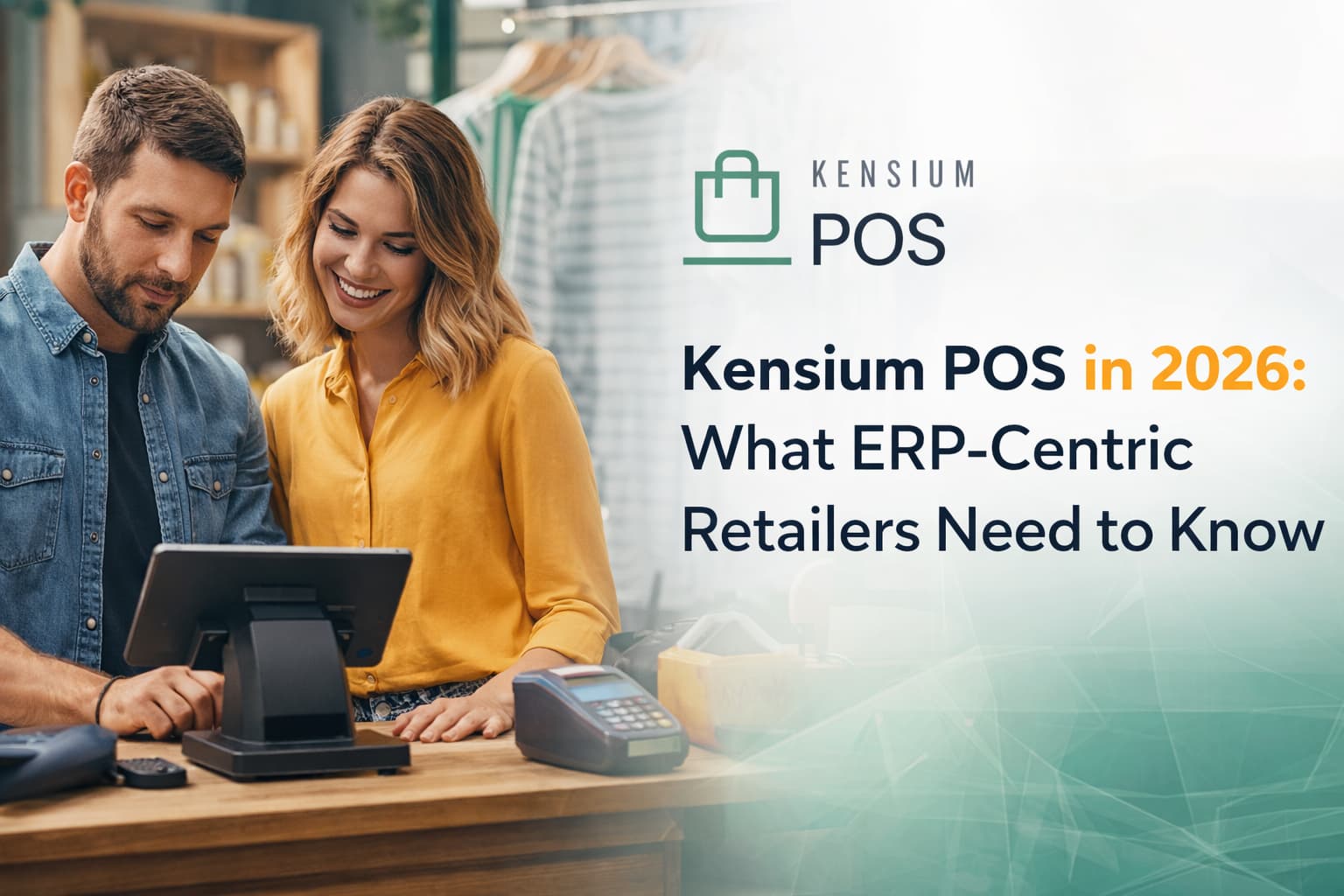





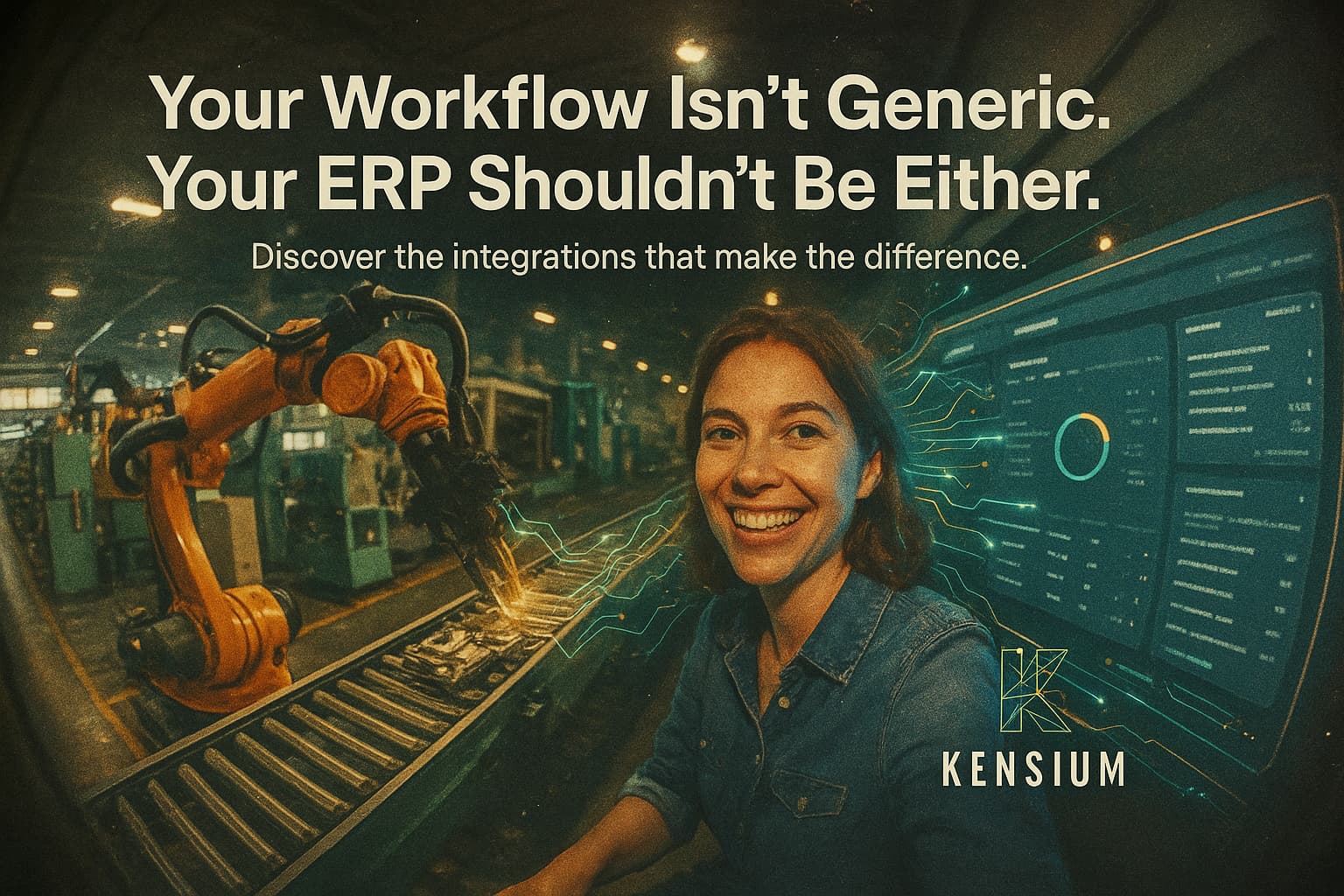
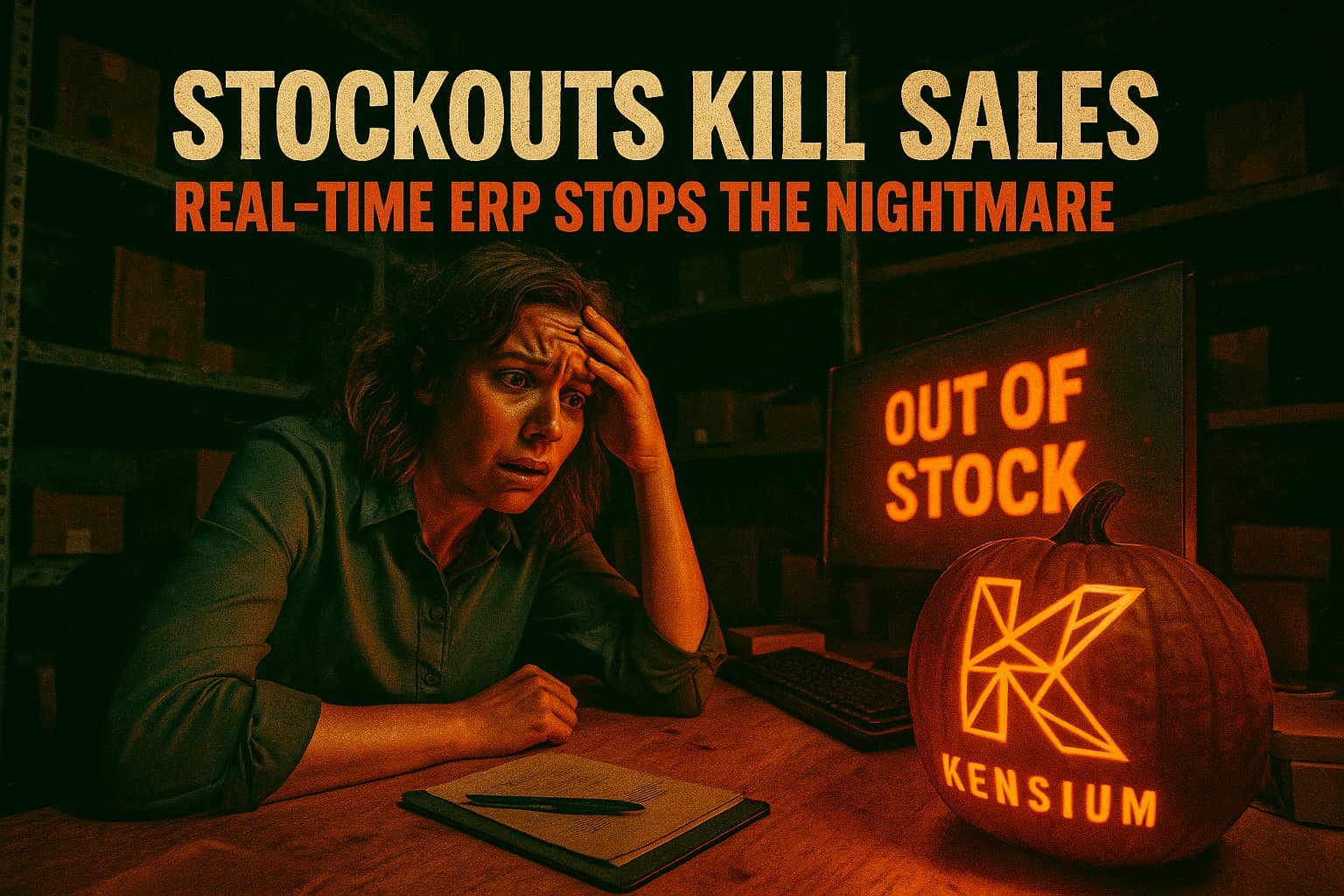


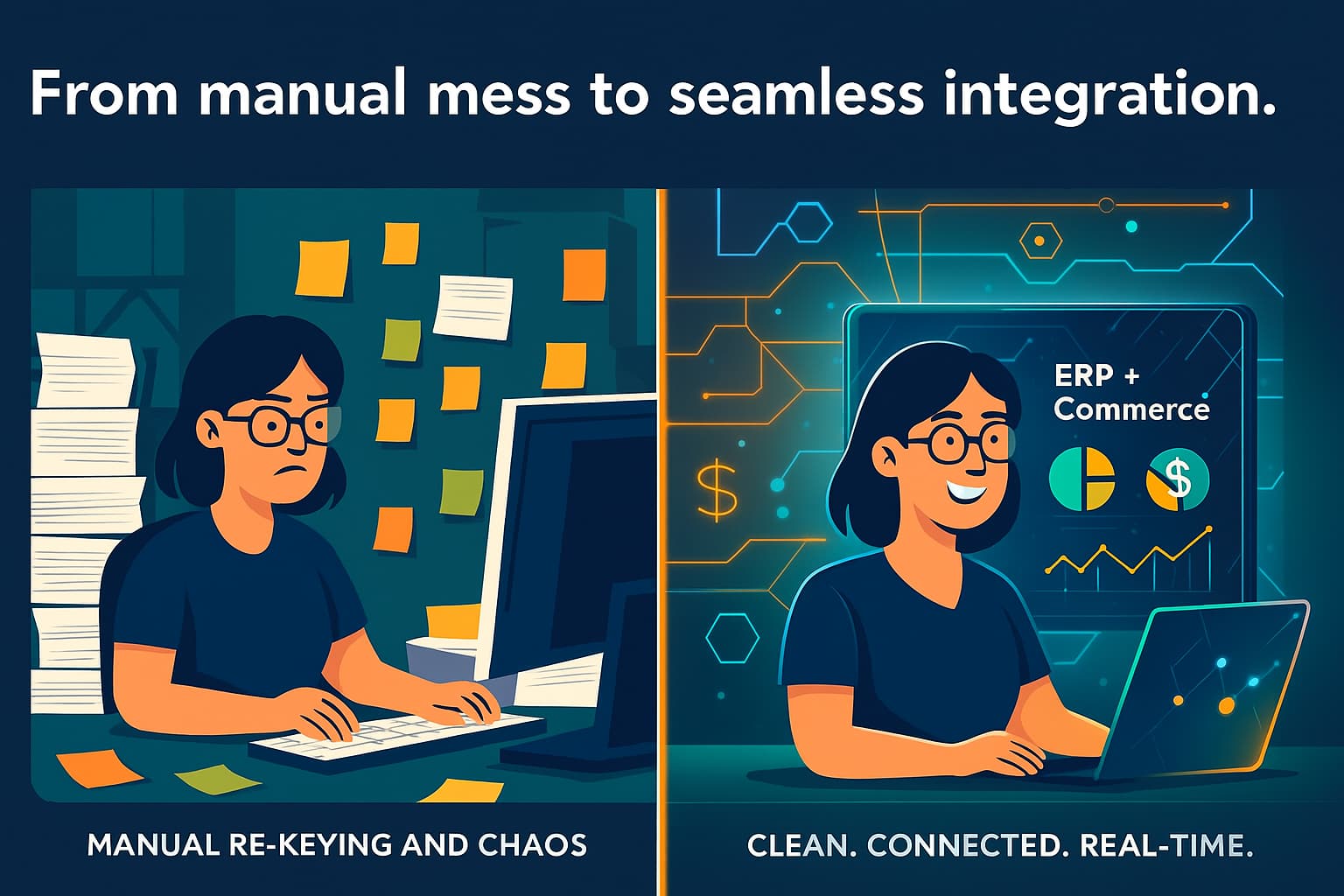

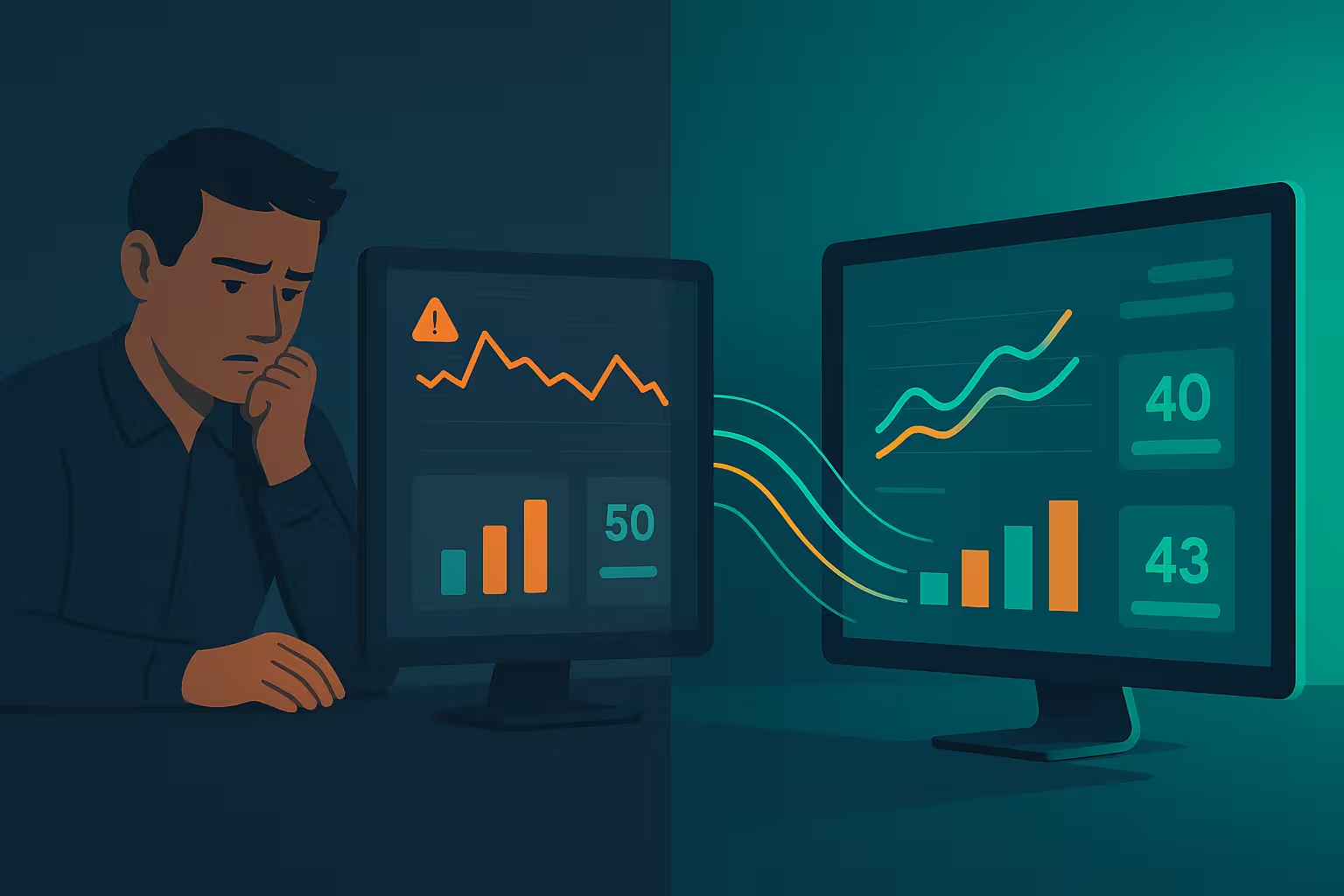


































-small.jpeg)







